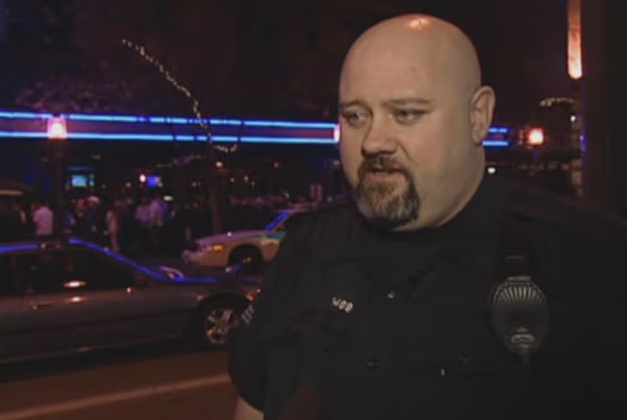‘You Should Be Disgusted’: B.C. Police Harassment Case Spurs Call for Overhaul of Disciplinary System
Lucas Tremblay
4/23/20253 min read


A proposed class action lawsuit by six former and current female police officers in British Columbia has brought renewed urgency to long-standing concerns about systemic harassment, retaliation, and the failure of oversight mechanisms within the province’s municipal police forces.
The legal action, which accuses multiple police departments, the Office of the Police Complaint Commissioner (OPCC), and the provincial government of tolerating or enabling workplace harassment, was unexpectedly referenced during a recent public hearing into sexual misconduct allegations against Vancouver Police Department (VPD) Sgt. Keiron McConnell.
For plaintiff Helen Irvine, a former Delta Police officer, the acknowledgment from an OPCC lawyer that their lawsuit signals a “toxic” culture in policing was a moment of validation — but also underscored the deep disconnect between words and action.
“We were pleasantly surprised,” Irvine told CBC News. “It shows we’re on the right track. But we’re still fighting tooth and nail to be heard.”
Lawsuit Claims Culture of Harassment
The class action — which names 13 municipalities, their police boards, the OPCC, and B.C.’s solicitor and attorney generals — alleges a widespread culture of sexual harassment and retaliation in municipal policing. The plaintiffs say they’ve endured sexual touching, slurs disguised as “jokes,” and, in one case, sexual assault by a co-worker who was later convicted and jailed.
“What it is, is a scheme — and in its own creation and execution, it is systemically discriminatory toward women,” said one of the plaintiffs, whose name is protected by a publication ban.
Despite these allegations, they say the OPCC has repeatedly cited the Police Act to justify its decisions — freezing victims out of hearings, denying transparency, and protecting offending officers from meaningful consequences.
One plaintiff described being named a “witness” instead of a victim in her own sexual assault case. In another incident, an officer who shared derogatory texts from her trial received only a written reprimand and workplace training — a penalty she called “a joke.”
Hearing in VPD Misconduct Case Sparks Outcry
At the heart of the current public hearing is Sgt. Keiron McConnell, a senior VPD officer and former gang squad leader, who admitted to sending sexually inappropriate messages to five women — including students at two B.C. universities where he taught.
A proposed joint resolution would see McConnell demoted and suspended for 20 days. However, the punishment does not address the officer who originally brought forward the complaint — a female colleague who feared retaliation because of McConnell’s rank.
The retired judge overseeing the hearing, Carol Baird Ellan, has not yet accepted the resolution. If she rejects it, the case could proceed to a more robust disciplinary process.
Meanwhile, two of the officers impacted by McConnell’s conduct were handed printed copies of the proposed deal on the day of the hearing — reinforcing, critics say, how victims are sidelined by the current system.
“The public hearing gave the public one inside view,” said one plaintiff. “And you should be disgusted, because that man might show up at your house when you’re calling for help.”
Legal Delays, Dismissals and a Broken System
The plaintiffs are facing delays in court. Their certification hearing is currently set for October 2026, though it may be pushed further as defendants argue the women must exhaust administrative channels like the Workers' Compensation Appeal Tribunal first.
Earlier this month, a judge dismissed claims against the OPCC due to statutory immunity — but gave the women time to revise their claims by alleging “bad faith” or constitutional rights breaches.
Despite the obstacles, Irvine says they’ve been contacted by dozens of potential claimants since filing in 2023. And the McConnell hearing has revealed the system’s inner workings to the public.
“We’re not even debating whether there’s a problem. We’re debating how we deal with it. Who’s responsible for fixing it?” she said.
OPCC Defends Its Role — But Admits Framework Still Developing
The OPCC told CBC that the McConnell hearing was the first initiated under recent changes to the Police Act that allow for public hearings earlier in the process. The same legislative reforms also enable the OPCC to investigate systemic misconduct in policing.
However, oversight director Cameron Loveless admitted that those mechanisms are still under development, and no systemic investigations have yet been launched.
In the meantime, the ministry’s own internal records show delays in investigating and informing victims. In Jane Doe’s case, the ministry took 78 days to inform her that a CVAP employee had inappropriately accessed her personal files related to an alleged sexual assault.
“The Police Act wasn’t built to deal with this. It protects the system, not the victims,” said another plaintiff.
A Turning Point or Another Dead End?
For advocates and plaintiffs alike, the McConnell case is emblematic of a broader issue: the disconnect between public statements acknowledging harm and the opaque, legally constrained system that continues to deny full participation to victims.
While the OPCC and police departments express concern over workplace culture, women inside the system say true accountability — and real reform — remain elusive.
“We know what happens. We’ve lived it,” said Irvine. “But now the public knows too. And that changes everything — or at least, it should.”
News
Stay updated with the latest BC news stories, subscribe to our newsletter today.
SUBSCRIBE
© 2025 Innovatory Labs Inc.. All rights reserved.
LINKS
